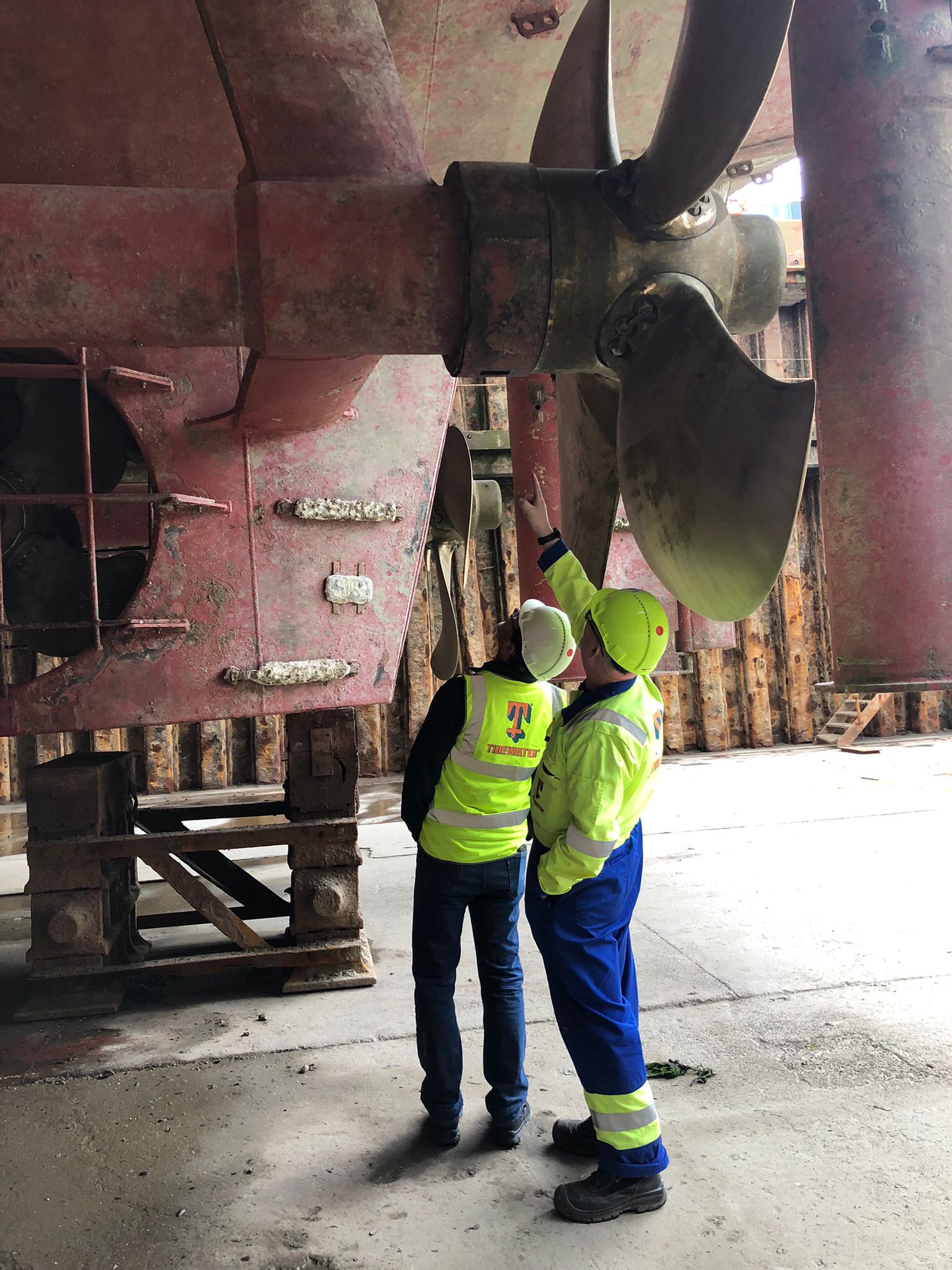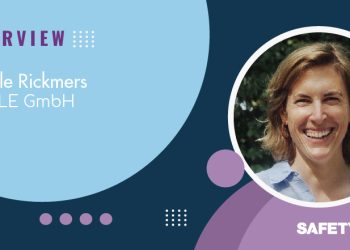In an exclusive interview to SAFETY4SEA, Mr. Quintin V. Kneen, President and Chief Executive Director, Tidewater Inc. shares top priorities in their agenda and actions to change industry’s image from one that is dated, to one that is dynamic and exciting so that more people would be interested to pursue lifelong careers.
In that regard, Tidewater focuses on attracting young people who tend to be more environmentally conscious and can bring fresh perspectives, and also on embracing diversity with many initiatives that promote cultural appreciation and corporate ethos. ‘’To ensure a sustainable future for shipping, we need to work collaboratively together to attract young people and optimize vessel performance with digitalization.’’ Mr Kneen concludes.
SAFETY4SEA: What are your top priorities in the agenda for the next five years?
Quintin Kneen: Today, Tidewater is world’s largest OSV owner and operator, with 200 vessels and a global presence in six geo-markets. As the market leader, we will continue our strive to build the safest, most reliable, most efficient and most carbon friendly OSV company in the world. By being carbon friendly, I mean having fuel-efficient vessel operations and utilizing our vessels to assist in the building of offshore renewable energy facilities. We will continuously explore innovative solutions to make our vessel operations more fuel-efficient and to reduce our carbon footprint. The shipping industry has traditionally faced an image issue, young people are more inclined to pursue careers in banking and FinTech as they deem the shipping industry to be less exciting and attractive. As Tidewater continues to grow, we want the best talent to join our global workforce, to attract young people from diverse backgrounds and nationalities. This industry is fast transforming and there are many diverse career opportunities for young people. We need to find ways to excite young people about this industry, highlight the good work done by the shipping industry for the environment and champion efforts to correct the misconceptions about this sector. In doing so, we can collectively make this industry more appealing to young people.
S4S: What are the challenges with regards to offshore energy exploration from your perspective?
Q.K.: One of the biggest near-term challenges for the offshore industry is to demonstrate its ability to manage its carbon intensity. With the push for sustainability and environmental protection worldwide, clients’ expectations for service providers to do more for the environment, account for their carbon footprint have increased exponentially. We need to be able to demonstrate that we can support the world’s demand for oil & gas while managing our carbon intensity by optimizing our work operations; and doing our best to protect the environment. Attracting young people into our aging workforce is important as it will allow the industry to rejuvenate itself and get fresh perspectives from these young talents on how to propel the industry forward. Young people are increasingly more environmentally conscious. If we can manage our business sustainably and efficiently, we will be able to position ourselves as a choice employer for young people.
S4S: In your view, has the offshore industry been successful in implementing safety culture? What should be our key priorities for strengthening safety culture onboard and ashore?
Q.K.: The offshore industry has done an excellent job in implementing a safety culture and minimizing harm to seafarers. Many companies have their bespoke safety initiatives and work processes to keep work operations and employees safe. Holding safety stand-downs, Toolbox Talks, Risk Assessment, identifying near-misses and having discussions on safety topics are all ways to strengthen the company’s safety culture. The next step is to focus on mental health. Historically, the seafaring profession is more male-dominated, and people often do not speak up about mental health `enough in this industry. The key priorities to strengthen offshore and onshore safety culture should be to increase efforts to de-stigmatize mental health issues, enhance mental health awareness, and facilitate mental health support among maritime workers. It is important to create a work culture where people feel comfortable to raise mental health issues and to seek help when needed.
S4S: What actions should we take to collectively create an inclusive and attractive industry for the future generation?
Q.K.: Tidewater has more than 7,000 employees worldwide, which comprises a diverse workforce of many nationalities and ethnicities. Embracing and respecting our employees’ cultural differences is part of our corporate ethos and Tidewater’s Seven Seas (7Cs) values. We have an in-house newsletter, The Bridge which highlights business updates, people-centric stories and celebrates the diversity of our workforce. Festive celebrations, such as Christmas, EID and Diwali are featured to promote cultural appreciation among employees. Today, shipping continues to be one of the most economical ways of transport and this industry will continue for generations to come. Younger generations of today are much more environmentally conscious and are increasingly seeking meaningful purpose in the work they do. To compete with other perceived “exciting” industries like Fintech and banking, the shipping industry needs to do more to educate people about the integral role that the shipping industry does for the world and how this industry contributes to a lower carbon world through carbon-efficient trade and offshore windfarms. We also need to raise awareness about the myriad of exciting career opportunities for young people to pursue life-long and meaningful careers.
S4S: What lessons has the industry learned with the pandemic? Where should we improve for a future crisis?
Q.K.: The COVID-19 pandemic brought about drastic mitigation and containment measures to prevent the spread of the virus and economic disruptions which led to a slowdown in production across the world and a drastic plunge in the global demand for oil. In the last two years, we have put in place processes and policies to keep our employees safe, to reduce exposure and the spread of the virus and ensure that our seafarers have access to vaccines. We are committed to the health and safety of our employees and aim to achieve Zero Harm to our people and the work we do.
Challenges faced by seafarers were placed in the spotlight during the pandemic when many were stranded at sea, separated from their loved ones for prolonged periods of time with port closures, shutdown of borders and disruptions. Different stakeholders and companies had to make swift decisions to adapt to these changes and to work closely with regulatory bodies and authorities to ease measures and fight for the seafarers to be recognized as “key workers.” This journey has certainly not been easy, but we have learnt a lot in the process and will be better prepared to manage the next pandemic.
Another key lesson learnt was the importance of effective communication and teamwork between our shore-based employees and seagoing employees to ensure that we uphold high safety and service standards while ensuring business and operational continuity. The pandemic has accelerated the pace of developments in sustainability and digitalization across the globe. For Tidewater, we continued to accelerate efforts to adopt technology to and implemented innovative digital solutions to minimize paper-based processes so that our employees can work more effectively.
The pandemic has re-defined work and companies have become more receptive to the concept of employees working from home arrangements as being a workable arrangement as evidenced during the pandemic. We have also reviewed our pre-COVID work arrangements and adopted flexible work arrangements where possible so that our employees can work from home to safeguard their well-being. As the world gradually adjusts itself to life with COVID-19, we urge everyone to talk about safety issues openly and have conversations regarding these safety rules with their fellow co-workers and colleagues. This will help to raise the safety consciousness in the company so that everyone can do their best at work in a safe and conducive environment and Get Home Safe to their families and loved ones.

S4S: If you could change one thing across the industry from your perspective, what this would be and why?
Q.K.: I would change the status of seafarers as “key workers” right from the start of the pandemic. On 1 December 2020, The International Chamber of Shipping welcomed a resolution put forward by Ambassador Dian Triansyah Djani, of Indonesia to urge governments to implement measures to allow crew change, and to ensure access to medical care for all maritime personnel which was adopted by the United Nation Assembly. Many companies had to grapple with border restrictions and seafarers had to endure long periods being away from their families because of restrictions imposed by different countries. If the process could have expedited, we would be able to relieve some stresses from seafarers and help them cope better during the pandemic.
Another thing would be to change the image of the industry from one that is dated, to one that is dynamic and exciting so that more people would be interested to pursue lifelong careers. The industry has done a lot of good work to protect the environment, like the ballast water management and ongoing efforts to protect sensitive maritime habitats and more can certainly be done to create awareness in these efforts to help improve the public image of the shipping industry.
S4S: Do you have any new projects/plans that you would like to share with industry stakeholders?
Q.K.: Safety of our people and operations area is our top business priority. It is imperative that every employee understands that everyone has a part to play in upholding workplace safety, are mindful of these rules and to abide by them. In recent months, we have rolled out several safety-related initiatives as part of our ongoing efforts to raise safety awareness among our employees. These include the revamp of Tidewater’s Safe-T-Rules and QHSE handbook. We have completed our new safety animation video, Hand and Finger Safety campaign which highlights common safety hazards related to hand and finger-related injuries and the tangible and non-tangible impact it has on the person, the family and the company. Our internal newsletter, The Bridge also highlights new safety initiatives and programs so that employees are kept update about these developments.
We have adopted the web-based market-leading HSEQ and operations software, UniSea across all Tidewater legacy vessels and regional offices. The process took about two years and was completed in end August 2022. The next phase is to roll out UniSea onto the newly acquired Swire Pacific Offshore fleet of more than 50 vessels, which will help standardize key safety functions and improve how we report, monitor trends, and control information relevant to QHSE and vessel operations. The adoption of UniSea will certainly drive safety improvements across our company.
S4S: What is your key message to industry stakeholders with regards to a more sustainable future for shipping?
Q.K.: To ensure a sustainable future for shipping, we need to work collaboratively together to attract young people into this industry and explore innovative solutions to be more efficient and to optimize vessel performance with digitalization.
The views presented hereabove are only those of the author and do not necessarily reflect those of SAFETY4SEA and are for information sharing and discussion purposes only.































































He is of course correct, the future is in the younger generation.
It would be interesting to see how many Cadets the Offshore industry has in training as compared to other sections of the maritime industry.